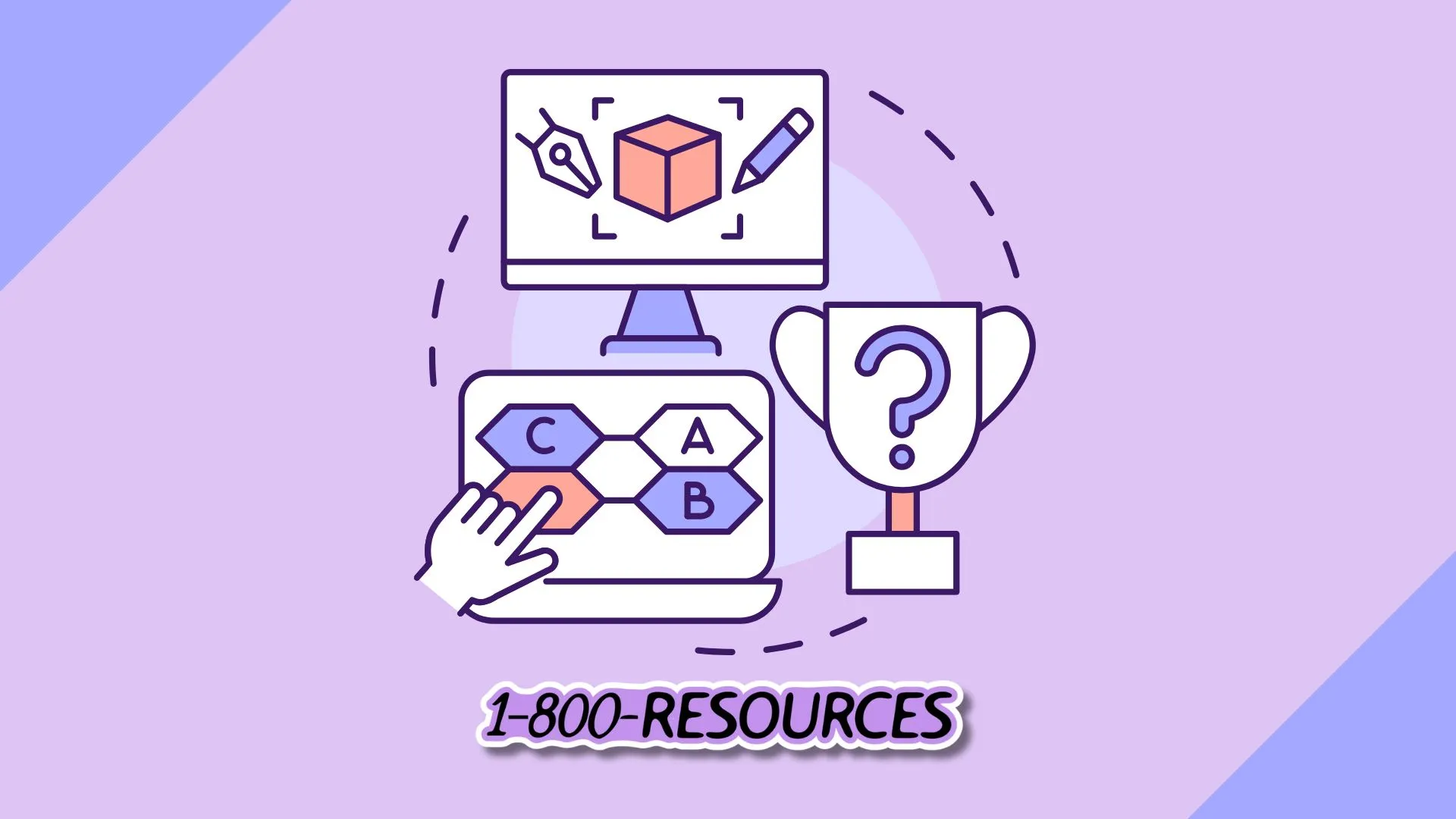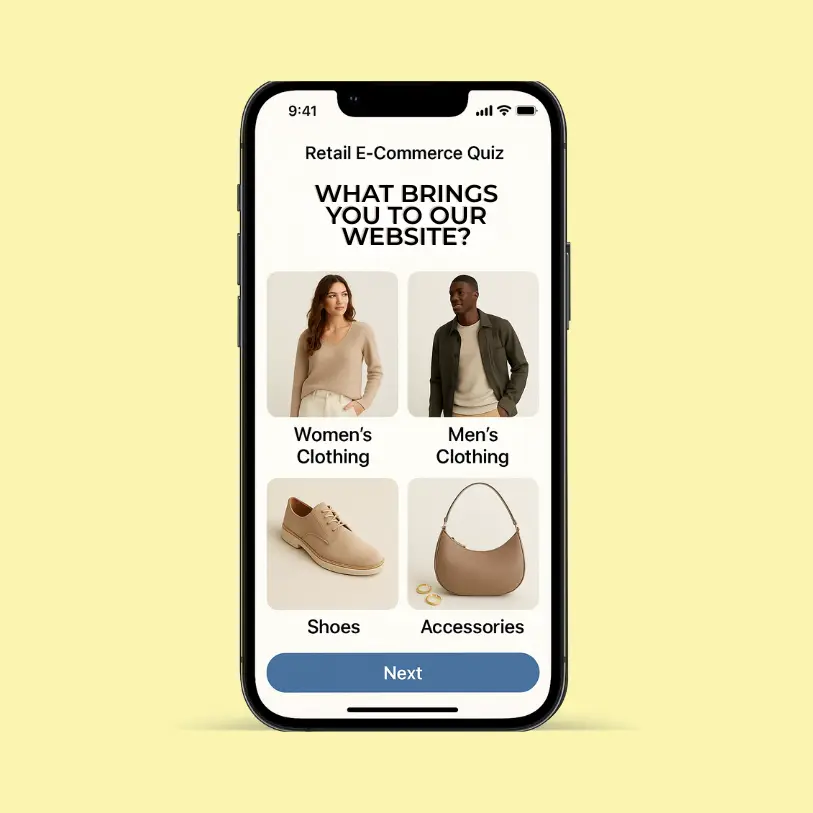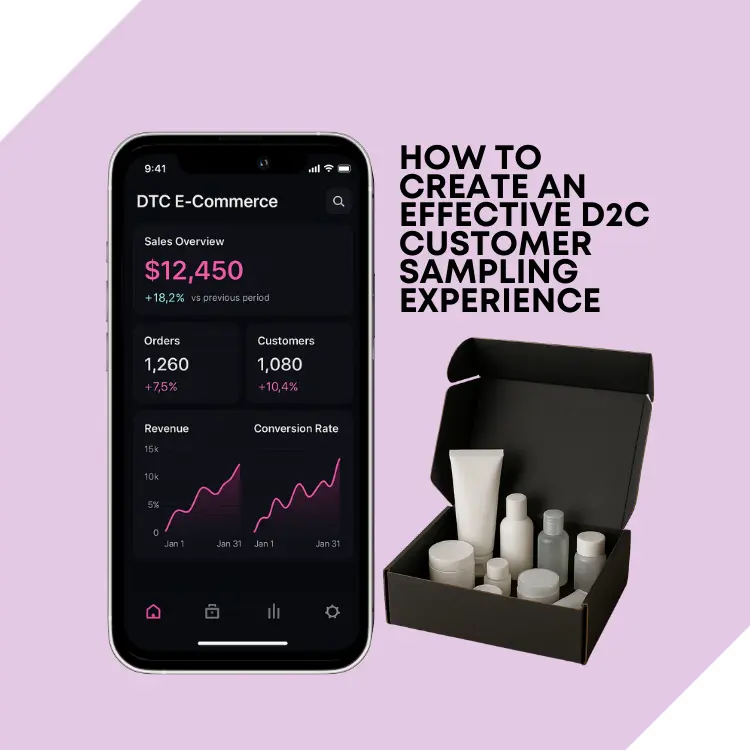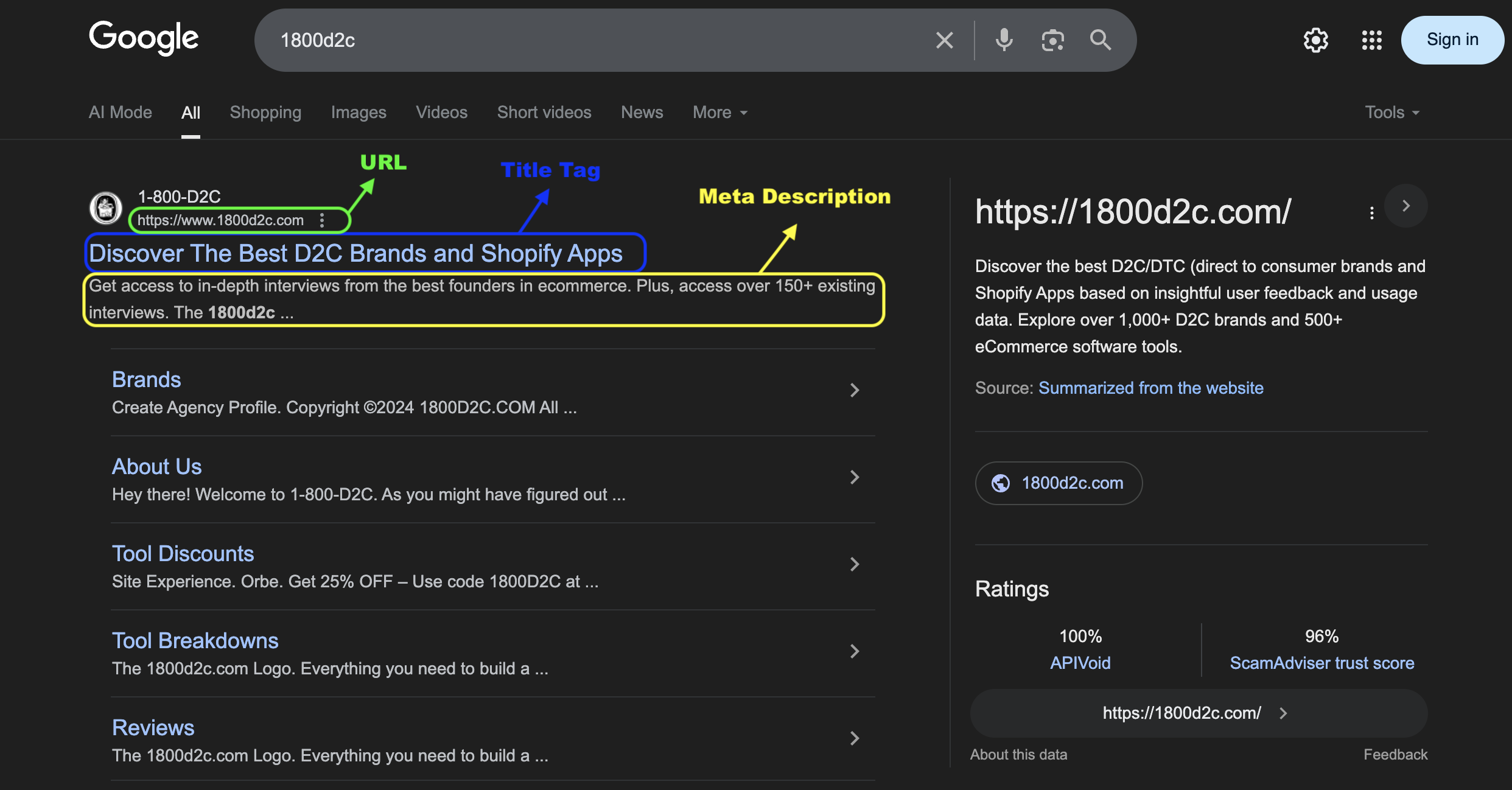
Traditional lead magnets are becoming a liability. With the growth of AI overviews and the new organic search landscape, D2C e-commerce brands can't rely on old methods for customer acquisition.
The classic ebook, brand launch guide, or 10% off coupon in exchange for an email signup feels like a gamble as opposed to a tried-and-true method for growing your owned audience. Modern consumers expect personalization from the very first touch point in their interaction, and static content fails to provide the insight needed to convert your target consumer on the spot.
Interactive quizzes fundamentally change this dynamic. They reframe data collection from a transaction into a conversation, mimicking the consultative consumer experience of a great in-store associate. By engaging users for minutes instead of seconds, you don't just capture a lead; you build a detailed customer profile based on voluntarily shared preferences, frustrations, and goals.
This is the power of zero-party data. You can capture information you can’t buy from Facebook, and it's the key to transforming your lead quality and customer acquisition strategy.
[cta-btn title="Build Your Brand And Become A Member" link="/membership-pricing"]
The most effective quizzes don't feel like a needless assessment. They feel like a discovery. Instead of asking clinical questions about product features, you can create a branded, tailored Buzzfeed-esque experience that connects with a customer’s identity. This approach quietly maps personality-driven outcomes to specific SKUs, brand goals, and company OKRs making the final product recommendation feel like a personal revelation, not a cheesy sales pitch.
Consider these tactical shifts in your quiz design to garner the most interaction:

Once a user starts a quiz, the goal is to make quiz completion feel inevitable and even necessary. Consumer friction, that's any action or item that inhibits the user from reaching their goal, is the enemy of conversion. When you create the quiz, every element of the experience should be designed to build momentum. By breaking the journey into small, manageable steps, each survey answer or click acts as a micro-commitment, psychologically nudging the user toward the finish line of the goal you're after.
This isn’t just about good user interface or user experience. The architecture of the quiz needs to be strategic with a goal in mind. Brands that master conversion rate optimization techniques through A/B split tests in their quizzes see completion rates skyrocket
[single-inline-tool]
The data you collect from a quiz is the gold standard of customer intelligence. You’re learning about their routines, pain points, and aspirations. These are insights that ad platforms simply cannot provide or have the capacity to give you for your multi-funnel channel marketing. The true value is realized when you feed this zero-party data directly into your marketing stack, creating a feedback loop that personalizes every subsequent touchpoint.
This turns your quiz from a one-off campaign into a conversion accelerator.
The quiz format is incredibly versatile and shouldn't be limited to top-of-funnel acquisition. By deploying targeted micro-quizzes at other stages of the customer journey, you can build trust, improve the post-purchase experience, and increase conversion rates to a multitude of other digital marketing channels.
You can even branch out of traditional e-commerce conversion items with zero and first-party data you gain from consumer quizzes. A simple, well-timed quiz can act as a proactive customer service tool. By sending a “fit-check quiz” 24 hours after a retail clothing purchase, you give customers a chance to confirm they chose the right size or color before the item even ships. This single action can dramatically reduce return rates while reinforcing that your brand is invested in their satisfaction.
Also, don't hesitate to deploy quizzes using popular D2C SMS tools. You can embed a three-question quiz in an SMS message, which can generate (quite high) response rates. A quick text asking customers to reply A, B, or C to a simple question, followed by a personalized link, is a powerful way to re-engage them and drive high-intent traffic back to your site. It’s a low-friction method for instant feedback and a proven path to higher click-to-buy rates by maintaining consumers in your brand's online ecosystem.
[inline-cta title="Discover More With Our Resources" link="/resources"]

Quiz Kit is an interactive tool designed for Shopify that helps ecommerce brands enhance customer engagement and drive conversions through personalized quizzes. By leveraging advanced AI technology, Quiz Kit recommends the perfect products for users based on their preferences, offering a virtual personal shopper experience. The tool features customizable quiz templates, integrates with popular CRM platforms, and provides valuable analytics to track buyer behaviors and optimize marketing strategies.



